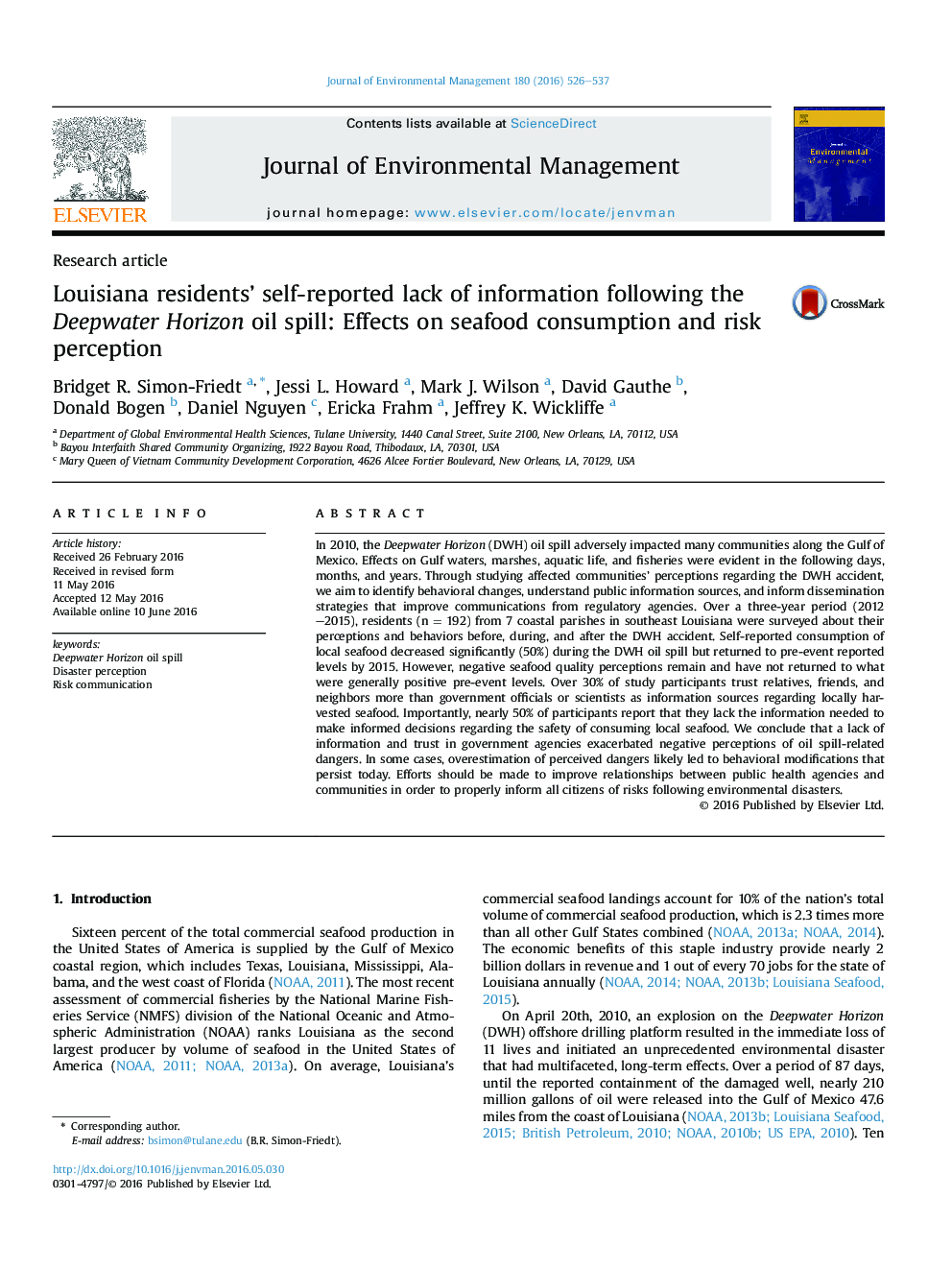| Article ID | Journal | Published Year | Pages | File Type |
|---|---|---|---|---|
| 7480269 | Journal of Environmental Management | 2016 | 12 Pages |
Abstract
In 2010, the Deepwater Horizon (DWH) oil spill adversely impacted many communities along the Gulf of Mexico. Effects on Gulf waters, marshes, aquatic life, and fisheries were evident in the following days, months, and years. Through studying affected communities' perceptions regarding the DWH accident, we aim to identify behavioral changes, understand public information sources, and inform dissemination strategies that improve communications from regulatory agencies. Over a three-year period (2012-2015), residents (n = 192) from 7 coastal parishes in southeast Louisiana were surveyed about their perceptions and behaviors before, during, and after the DWH accident. Self-reported consumption of local seafood decreased significantly (50%) during the DWH oil spill but returned to pre-event reported levels by 2015. However, negative seafood quality perceptions remain and have not returned to what were generally positive pre-event levels. Over 30% of study participants trust relatives, friends, and neighbors more than government officials or scientists as information sources regarding locally harvested seafood. Importantly, nearly 50% of participants report that they lack the information needed to make informed decisions regarding the safety of consuming local seafood. We conclude that a lack of information and trust in government agencies exacerbated negative perceptions of oil spill-related dangers. In some cases, overestimation of perceived dangers likely led to behavioral modifications that persist today. Efforts should be made to improve relationships between public health agencies and communities in order to properly inform all citizens of risks following environmental disasters.
Related Topics
Physical Sciences and Engineering
Energy
Renewable Energy, Sustainability and the Environment
Authors
Bridget R. Simon-Friedt, Jessi L. Howard, Mark J. Wilson, David Gauthe, Donald Bogen, Daniel Nguyen, Ericka Frahm, Jeffrey K. Wickliffe,
